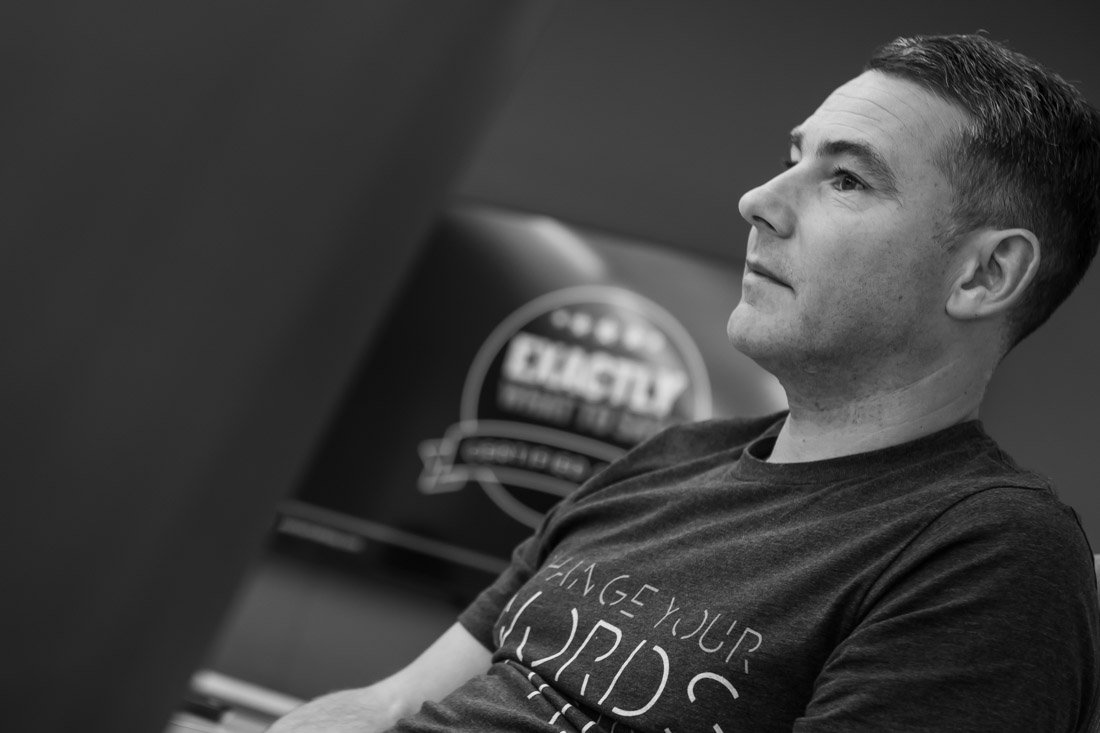Prove It: Exactly How Modern Marketers Earn Trust is a brand new book co-written by StoryFuel founder, Melanie Deziel and master of influence, Phil M. Jones. In it, they break down the importance of trust when advertising.
But how exactly do you prove you’re trustworthy?
Their book walks you step by step through the process of identifying and categorizing your business promises, gathering the right evidence, and backing up each claim, so your consumers can believe what you’re telling them.
In this blog, you will discover the 3 key ways for marketers to earn trust. If you practice all three, you’re guaranteed to see results.
How To Earn Trust
Your audience doesn’t trust you.
Did you know that only 4% of consumers believe that advertisers and marketers practice integrity?
Unfortunately, your reputation precedes you because as an industry marketing and advertising isn’t exactly known for transparency and honesty. Just look at the frequent use of photoshop and the extra small, teeny tiny print.
It doesn’t matter if you’re not doing it, so many others are that it creates a lot of reasons for consumers not to trust advertisers.
Last year scams and fraud conducted throughout the EU cost a staggering €248 million.
This causes a huge problem when establishing trust and transparency with a consumer.
A big part of the problem is that advertisers claim so much without ever providing any evidence or proof. The consumer is simply expected to take your word for it. If you want your audience to trust you then you’ve got to provide the proof.
One way to do this is with content marketing. This is a fantastic way of showing rather than just telling.
And with the burden of proof on you, we’ve got three super easy ways to provide proof of all your business claims. Content that provides corroboration, demonstration, and presentation.
1. Corroboration
When you corroborate claims with content you’re using other people’s perspectives to validate what you’re saying. This is also referred to as third-party credibility or social proof.
But which 3rd party works best? There are 2 types: the experts and the witnesses.
Both provide value but in very different ways.
Experts
The experts bring informed opinions to back up your claims. They can be researchers, academics, or people who have above-average knowledge of the topic.
You don’t have to just use humans, you can also use rankings, and awards to back up your claims. Anything relative is an opportunity for you to back up your claims.
Witness
A witness can be used very effectively to back up your claims and the more relatable your witness is to your consumer, the better.
The witness can give a first-hand account. They’ve seen it, and they’ve experienced it, so their words carry a lot of weight.
Bringing a witness means that you’re presenting someone who has experienced you delivering on your promises.
These can be in the form of testimonials or reviews. The more you have the more compelling a case you will have.
2. Demonstration
There will always be those that remain skeptical and it doesn’t matter how many experts or witnesses you have. These skeptics will want to see it with their own eyes and this is when demonstration becomes so important.
You need to provide evidence directly to your audience so that they can assess it themselves. It’s not someone telling them what's happening, they get to see what happens with their own eyes.
You can do this with stories or with documentation.
Stories
This could be a brand story, a customer success story, or a customer profile.
A story provides narrative evidence of the past. You might mistake this for a testimonial or a review, but a story goes much deeper. It creates a moment and it has a lot more detail compared to a one-line review from an anonymous avatar.
A story shows the consumer the real success moments.
Documentation
Another way to show evidence is to provide documentation. This can be with photos or videos.
The live video is particularly effective, but if you don’t want to go live then consider behind-the-scenes content.
This kind of content is the second most viewed content on Instagram. People absolutely love it!
Marketing and advertising can be so polished that they can remove the human connection. When you go behind the scenes it’s raw and real and provides that connection.
Documentation can also be literal. You can show transcripts, internal documentation, or anything that you think will help you to make the point to your consumer.
Your main goal is to make them feel like a witness.
3. Education
The final way to prove to your audience that all the claims you make are true is through education.
Teaching is very important.
Consumers who get your educational content are 131% more likely to buy from you.
You can educate with informational content such as the basics about your products and services.
You’re likely already doing this, but you probably aren’t giving coaching content. This kind of content is when you go through and provide all the reasons why they need you.
For example, walking them through step by step how to set up your product.
Informational education leaves no room for worry, the consumer has all the information needed to understand why your product or service works.
Make It A Practice, Not A Tactic
There are so many ways to talk to your audience. But ultimately you need to provide value in the form of proof.
You might be tempted to follow just one of these three examples, but it’s really important to use all three if you can.
When you corroborate with your content, you’re bringing in sources who act as social proof.
When you demonstrate with your content, you’re bringing your evidence forward and letting them see it with their own eyes.
And when you educate through content, you’re helping your audience feel more comfortable engaging in a sales conversation with you.
You have to make this more than a tactic though, this has to be a deeply ingrained practice.
By doing it routinely you can build an entire body of work that backs up all of your business claims.
This will help to break down consumer skepticism because remember, your audience doesn’t trust you.
But they are waiting for you to prove it, so don’t make them wait too long.
If you love the sound of this and want to find out more you can order the book Prove It: Exactly How Modern Marketers Earn Trust here:










